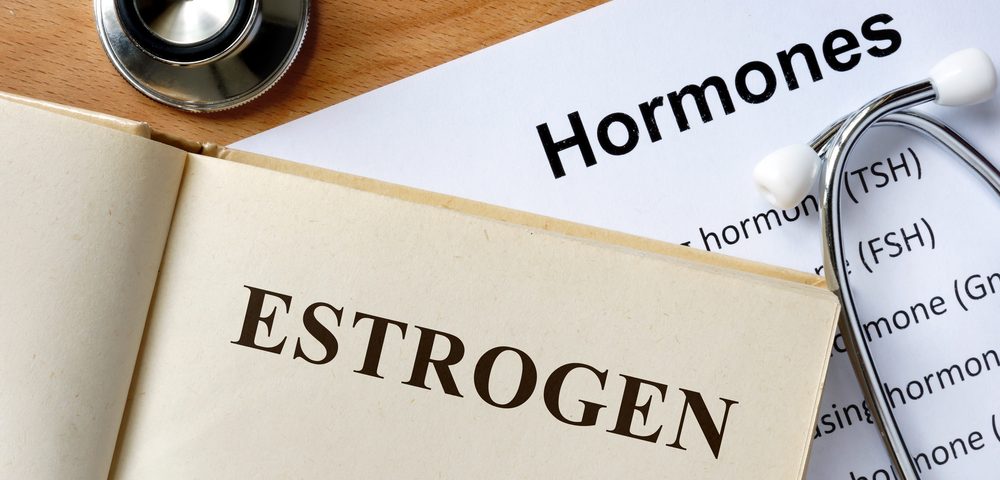Lately, I’ve become obsessed with understanding my hormones. We’re quite used to the word “hormones” being thrown around in terms of women’s health, but how much do we actually understand what they are, what they do for us, and how they affect endometriosis?
My curiosity has been sparked by a keen interest in the science of endometriosis. A lot of my personal research into diet and alternative therapies also includes the science behind how and why these strategies help. I’ve found myself in a place where my cycle feels more stable than ever, my IBS issues are minimized and manageable, my periods are having a much lesser impact on my life, and my pain is greatly subdued. It’s taken a long time to get to this point where so many symptoms feel under control, but one thing I’ve not been able to shift is my fatigue (and interstitial cystitis, but that’s for another time!). So, I started digging. I was confused why — when so many symptoms felt under control and manageable — that I still struggle to wake up and find I’m always functioning from a place of tiredness or exhaustion.
Enter: estrogen dominance. Research now suggests that endometriosis is an estrogen-dependent disease, meaning it thrives off estrogen. It’s even thought that the disease causes the hormone to release from the endometriosis growths. However, research also indicates that many women with endometriosis have a hormone imbalance, mainly estrogen dominance. Estrogen dominance doesn’t necessarily mean that you have crazy amounts of estrogen; it means that the ratio of estrogen to progesterone is too high — it’s not balanced as it should be. Estrogen dominance is now such a prevalent factor in the study of endometriosis that it is thought of as a potential cause of the disease (though there is no definitive cause as of yet).
So, I went about sourcing experts on hormones and the symptoms of estrogen dominance, and I almost laughed out loud. Christiane Northrup, a menopause and women’s health expert, lists these symptoms:
- Decreased sex drive
- Irregular or otherwise abnormal menstrual periods
- Bloating (water retention)
- Breast swelling and tenderness
- Fibrocystic breasts
- Headaches (especially premenstrually)
- Mood swings (most often irritability and depression)
- Weight and/or fat gain (particularly around the abdomen and hips)
- Cold hands and feet (a symptom of thyroid dysfunction)
- Hair loss
- Thyroid dysfunction
- Sluggish metabolism
- Foggy thinking, memory loss
- Fatigue
- Trouble sleeping/insomnia
- PMS
I couldn’t help but notice that so many of these symptoms are also either officially recognized symptoms of endometriosis or symptoms that women often complain of with endometriosis. I’ve regularly heard women with endometriosis discuss symptoms of fatigue, severe PMS, bloating, insomnia, foggy thinking, mood swings, depression, and irregular periods. What if endometriosis comes with estrogen dominance symptoms, at least in some cases? What if what we think are purely endometriosis symptoms, are actually symptoms of estrogen dominance, or both of them combined?
Could that be why my endometriosis seems so under control, despite the fatigue? Or why blogger Jessica Murnane complains of bloating, despite not having a painful period or any other endometriosis symptoms in years? I’m not a hormone expert or a scientist, so I can’t be sure if my thinking is correct at all, but it’s worth investigating. In fact, when speaking to herbalists trained in hormone balancing, they mentioned to me that it’s completely obvious to them, that those with endometriosis aren’t just dealing with endo alone, but some kind of hormone imbalance that needs addressing.
So, what can we do about it? The first step, to ensure you’re treating an issue that actually exists, is to get tested. From my understanding, the consensus is not to go with a blood test (unless you want to have several in one month!). The reason being that our hormones change throughout our cycle. So most hormone specialists recommend saliva tests throughout the month. Alisa Vitti is a world-renowned hormone expert and founder of Flo Living. She has a hormone kit available to buy from her website, which is then sent off and analyzed. It’s actually pretty pricey, but the upside is you know you’re getting a good quality test that’s being checked by professionals. I wouldn’t recommend buying one from Amazon, for example. However, if Alisa’s kit is too expensive for you right now, do some research and find a reputable provider who you can trust. Once you know the situation with your hormones, you can begin addressing them.
Next week, I’ll take you through a lowdown on how to reduce your estrogen levels if you are in fact estrogen-dominant.
***
Note: Endometriosis News is strictly a news and information website about the disease. It does not provide medical advice, diagnosis, or treatment. This content is not intended to be a substitute for professional medical advice, diagnosis, or treatment. Always seek the advice of your physician or other qualified health provider with any questions you may have regarding a medical condition. Never disregard professional medical advice or delay in seeking it because of something you have read on this website. The opinions expressed in this column are not those of Endometriosis News or its parent company, BioNews Services, and are intended to spark discussion about issues pertaining to endometriosis.


